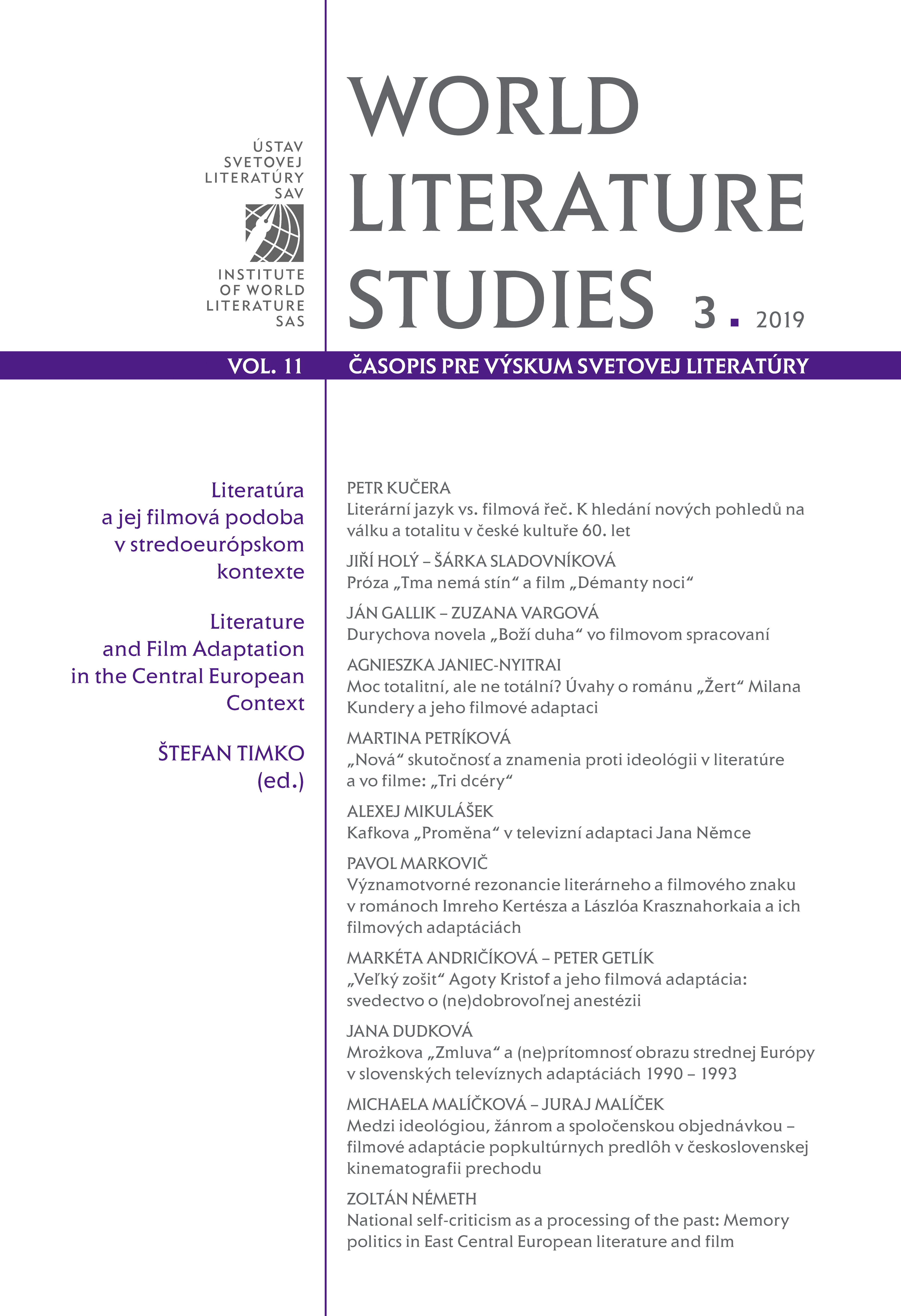„Veľký zošit“ Agoty Kristof a jeho filmová adaptácia: svedectvo o (ne)dobrovoľnej anestézii
“The Notebook” by Ágota Kristóf and its film adaptation: testimony of (in)voluntary anaesthesia
Author(s): Markéta Andričíková, Peter GetlíkSubject(s): Language and Literature Studies, Cultural history, Studies of Literature, Comparative Study of Literature, Other Language Literature, Film / Cinema / Cinematography
Published by: SAV - Slovenská akadémia vied - Ústav svetovej literatúry
Keywords: "Narrator as homo duplex"; "Metatextual play"; "Collective and individual history"; "Film adaptation"; "Anaesthesia";
Summary/Abstract: This study analyses the famous novel The Notebook (Le Grand Cahier, 1986) by the Hungarian-Swiss Francophone novelist Ágota Kristóf (1935–2011) and its film adaptation TheNotebook (A nagy füzet, 2013) directed by Hungarian film director János Szász, as the allegoryof “Big History”, as the recording of human tragedy (or the tragedy of human destructivenessand lust for power) and also the tragedy of the individual. We also focus on special narrativetechniques (1st person plural narrator, narrative voice as homo duplex), which are especiallysignificant in relation to brutal scenes of violence, sexual deviations, moral violations, and itsfilm transformation.
Journal: World Literature Studies
- Issue Year: 11/2019
- Issue No: 3
- Page Range: 89-101
- Page Count: 13
- Language: Slovak

